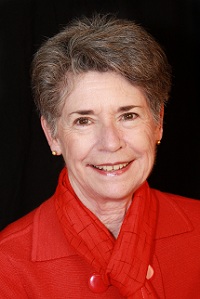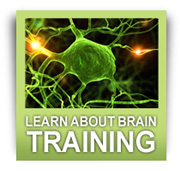 Mamas, as I mentioned here, I have a personal connection to Learning Rx. Very personal. My 8-year-old is about five weeks into a 12-week program at the Fayetteville location and we have seen all kinds of awesome academic strides since she started.
Mamas, as I mentioned here, I have a personal connection to Learning Rx. Very personal. My 8-year-old is about five weeks into a 12-week program at the Fayetteville location and we have seen all kinds of awesome academic strides since she started.
And the “brain lady” — local Learning Rx owner Suzanne Miltich (pictured right) — told me most of the gains are usually seen in the last half of the program. Impressive. Of course, my kiddo is working her tail off, too!
I met Suzanne several years ago, well before Ladybug started the program. I can still remember listening to her speak to a group of adults about a great way to memorize things and how we can train our brains to work faster and better. She explained that Learning Rx is like a fitness center for your brain. Makes sense.
Since Learning Rx is also a new nwaMotherlode sponsor, we wanted to ask some more in-depth questions about how the program really works.We asked Suzanne to give us the scoop:
At Learning Rx, you talk a lot about “brain training”. What exactly is that? Cognitive (brain) skills are used every minute you are awake to do everything: learn, work, play sports, and so on. The ‘brain training,’ or cognitive skills training, we do is a series of highly structured, sequenced activities designed to strengthen the skill areas of attention, memory, processing speed, logic and reasoning, and auditory, visual, and sensory-motor processing. This is very similar to going to a fitness center…only from the neck up. More specifically, these skills are:
- Attention—Ability to focus on a desired subject, sustain your attention to complete a task, and divide attention as needed.
- Memory—This includes both short- and long-term memory, holding information in your memory to ‘work’ on it, called working memory, and putting information into long-term storage, as well as being able to retrieve information when you need it.
- Processing Speed—Speed at which you can process information and complete a task.
- Visual Processing—Externally, the ability to problem-solve visually and interpret maps, charts, graphs; internally, the ability to visualize, or construct visual images, aids in comprehension, recall, and problem conceptualization.
- Auditory Processing—Ability to identify specific speech sounds and create meaning from a sound stream; essential for listening comprehension and learning the connection between the written and spoken word.
- Sensory-Motor Processing—Ability to coordinate what you see and hear with what you do. Proficiency in this area is strongly linked to coordination and can positively impact proficiency in sports, dance, and music.
- Logic & Reasoning—Ability to process incoming information and associate it with learned knowledge to arrive at a reasonable conclusion and know how to respond. This is essential for proficiency with math and science.

So children and adults can benefit from the programs there? LearningRx programs are effective beginning at age five. Our highly-structured programs begin at an easy level and proceed to quite complex activities that even an adult has to practice to master. Our programs are effective for children and adults of all ages who are struggling in school, adults and teens who want to get ahead or have difficulties, and seniors who want to maintain their brains or who are experiencing cognitive skills difficulties resulting from a wide variety of causes.
What are some common problems you see with the children who seek help from Learning Rx? We see a lot of children who are struggling in school because of problems with reading and/or attention difficulties, whether diagnosed or not, as well as students who may be doing OK, or even making good grades, but spend all evening doing homework in order to perform at that level.
What’s the best way for a parent to determine whether their child could benefit from one of your programs? Actually, most any child or adult can benefit from strengthening their cognitive skills. However, if your child is having difficulty in school and test results show weak cognitive skills, s/he needs LearningRx to develop the skills necessary for school success.
What is the typical time commitment to complete a program? Most programs vary from 12 to 24 weeks; however, the Einstein program can be as long as 36 weeks. With this program, you get it all– cognitive skills training with a focus on both reading and math.
I noticed your “Learning Skills Discovery Tool Survey” on the website. How can filling out that survey online help parents? The results of this survey give parents a preliminary look at areas that may be problematic for their child, ranging from attention thru the auditory processing skills necessary for being a successful reader. Survey results can confirm a parent’s concerns, as well as give them a preliminary picture of what’s causing the difficulties their child is experiencing.
Where are your offices located? The LearningRx center in Fayetteville is located at 2031 Green Acres Road, and the center in Bentonville is at 1501 S.E. Walton Blvd., Ste. 201, in Park Place Plaza.
What’s the difference between brain training and other programs? Tutoring works with subject matter, often directly with the classroom curriculum or materials with which a student is struggling. It can be quite effective for a student who has good learning skills but has missed out on information because they’ve changed schools, fallen behind in a single subject area such as chemistry, or have been out sick for an extended period.
In these circumstances, tutoring helps a student ‘catch up.’ However, if a student struggles with most or all subjects, takes longer to complete homework than expected, and continues to have difficulty, tutoring may only help them catch up temporarily. Without ‘brain training’ to develop and strength cognitive skills, a student will continue to struggle and need tutoring year after year. ‘Brain training’ builds mental toughness and the skills that students need to work independently to catch up and stay caught up. We sometimes refer to these skills as the ‘roots of learning.’
Other programs that focus on reading and/or math are also available. Ours is the only one which improves the whole set of brain skills. This automatically provides improvement in many other areas such as sports performance and test-taking, such as the ACT. Another big difference is that we provide greater gains in less time. We accomplish significant gains in as little as 3 months. This saves you time and money.
Suzanne, what’s your background with children who have learning issues? I’m a speech-language pathologist with a strong interest and expertise in language acquisition and disorders. The study of language is closely intertwined with cognition and memory and so I’ve studied this area as well. I came to LearningRx at a time in my life when most people are retiring, and my involvement with LearningRx is a culmination of decades of experience with language, memory, and cognition as a speech-language. I’ve worked with both children and adults as a practicing clinician, diagnostician, coordinator of special services, and professor.
What led you to Northwest Arkansas? I’m originally from Oklahoma and began my life not far from here in northeast Oklahoma. I left Oklahoma in my mid-20’s to go to graduate school in Missouri and kept moving away to work and further my education. After almost 20 years in southeast Michigan, I was ready to be closer to my family. My husband, who had lived all of his life in Michigan, was ready for a change, and when I had the opportunity to teach at the University of Arkansas, we decided the time was ‘ripe for a move.‘
What prompted you to open this business in NWA? Well, first I was recruited to be Director of the LearningRx center in Fayetteville. I had tried to retire once already and said, “Probably not, but I’ll come talk to you.” Well, after seeing and feeling for myself the cognitive skills training that was happening, I wanted to be part of it and became the center director in March, 2007.
Within a few months, the franchise for Northwest Arkansas was offered to my husband and myself. At first, we said, “No, not at this stage in our lives”–if only we’d had this opportunity 10 years, or even 5 years ago. You know the rest of the story; we did say yes, opened a second center in Bentonville, and haven’t stopped since.
This has been a boost for my aging brain. The boost comes from the challenge of operating a business with two locations, keeping track of many details, and working with staff of all ages. In order to maintain your cognitive skills as you age, you need to keep challenging your brain—and that’s what’s happened as I’ve taken on the adventure of promoting cognitive skills training in Northwest Arkansas. My mission has become promoting the importance of cognitive skills training for individuals of all ages: Children who are struggling in school, adults who want to ‘get an edge’ in the workplace, and seniors who want to maintain their brain, as well as children and adults who have had some kind of cognitive insult to their brain such as stroke or head injury.
What’s it like working with your husband? Is it more fun or more challenging than you expected? Well, I never thought about whether it would be ‘hard’ or ‘easy’ when we made a decision about going forward. I was too caught up in the ‘power of the product.’ I did realize early on that being in business together meant always ‘taking work home’ in that I could never get away. One or both of us usually has the business on our mind. And when I’m trying to get away, he wants to talk about it. Then I realized that it was also like taking ‘home to work.’ That is, our relationship with all its strong and weak points, pluses and minuses also went with us.
At times, that has been a real frustration, as when my husband makes one of his ‘command’ decisions regarding operations without consulting me or even letting him know he’s made the decision. By the way, I heard about this also happening with another couple who have in a center in Virginia. Her husband removed the partitions in rooms with multiple training stations. She would never have done this and was pleasantly surprised to find out it worked. On the other hand, working with my husband has given me a new appreciation for his strengths in areas I don’t think either of us knew were so strong, such as his creativity. All in all, this has been an incredible growing experience for both of us, personally and professionally, as a couple and individually.
Do you have any upcoming Learning Rx seminars that are free to the public? The seminar Brain Building for School Success is for parents and their school-age children. Stop by one of our centers and learn about the benefits of cognitive skills training while your child tries out some ‘brain games.’ Seminars are 4-5 pm. To reserve your place, call 695-1234 or 715-6870.
- October 18, 2301 Green Acres Road, Fayetteville
- October 12 & 25, 1501 S.E. Walton Blvd., Ste. 201, Bentonville
I’m also available to speak to teachers, PTO’s, church groups, and civic organizations on topics related to the importance of cognitive skills for children and adults. I’ll even bring my ‘Smart Kid’s Toy Box.’

